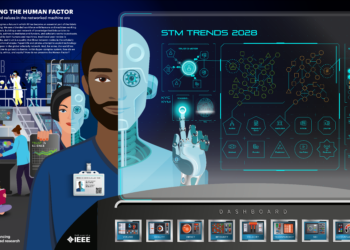
- Image via Wikipedia
Stewart and Kent both recently posted links to this article which touts the Kindle’s limitations not as flaws, but instead as a concentration-enhancing feature. I guess by that reasoning, the 10-year-old cell phone I have in a drawer with no data connection and no messaging functionality is awesome for helping me focus on the quality of my conversation.
Kidding aside, the article reminded me of this post from Cory Doctorow from back in 2007, You Do Like Reading Off a Computer Screen. Doctorow makes the argument that while we all spend countless hours reading material on our computer screens, it’s a poor medium for long-form reading, like that required by a novel. His idea is that the very form of the novel itself is highly influenced by the interface technology of a printed book:
Computers have their own cognitive style, and it’s not much like the cognitive style invented with the first modern novel . . . Don Quixote, some 400 years ago.
The novel is an invention, one that was engendered by technological changes in information display, reproduction, and distribution. The cognitive style of the novel is different from the cognitive style of the legend. The cognitive style of the computer is different from the cognitive style of the novel.
The argument being made is that new technologies will result in new forms of expression. When LPs were introduced, they created the artform we know today as an “album.” The size of the disc and spacing of the grooves meant that an album was going to be 40-60 minutes in length, and divided into two halves (one for each side of the platter). CDs changed things — you could now comfortably fit 80 minutes onto a disc, and there was no side 1 or side 2. Then came MP3s:
No one thinks about albums today. Music is now divisible to the single, as represented by an individual MP3, and then subdivisible into snippets like ringtones and samples. When recording artists demand that their works be considered as a whole — like when Radiohead insisted that the iTunes Music Store sell their whole album as a single, indivisible file that you would have to listen to all the way through — they sound like cranky throwbacks.
The idea of a 60-minute album is as weird in the Internet era as the idea of sitting through 15 hours of Der Ring des Nibelungen was 20 years ago. There are some anachronisms who love their long-form opera, but the real action is in the more fluid stuff that can slither around on hot wax — and now the superfluid droplets of MP3s and samples. Opera survives, but it is a tiny sliver of a much bigger, looser music market. The future composts the past: old operas get mounted for living anachronisms; Andrew Lloyd Webber picks up the rest of the business.
So the question then is, do we need a new technology (e-book readers) that is deliberately limited in order to imitate the form established by a different technology? Are we better served by a more capable, more open device that allows for the evolution of a new form of expression? Joe Wikert had a recent post about evolving beyond books, where he takes on the current trend of inflating a short series of blog articles to a 300 page book. He’s right on the money here, as every book I’ve purchased on Web 2.0, the future of publishing, social networking, etc., would have been a much better read if it was limited to 40 or 50 pages. By that point, it’s already said everything it’s going to say and the rest is just filler to make it look like a reasonably-sized book. As Doctorow concludes:
The problem, then, isn’t that screens aren’t sharp enough to read novels off of. The problem is that novels aren’t screeny enough to warrant protracted, regular reading on screens.
With e-reading devices, why not publish and sell these shorter forms, rather than imitating the form required by paper and ink? And why limit your device to mimic a format that it seems destined to replace with a new, as yet undetermined form of expression?
Discussion
3 Thoughts on "Will Form Follow Function?"
Ebooks enable the reemergence of the pamphlet as a literary form. I look forward to this, as many nonfiction books seem to me to exhaust themselves after fifty pages. But how does one call attention to such works? A trade book calls attention to itself by sitting on a table at Barnes & Noble. The marketing of a pamphlet in digital form poses large problems; even well-written work may fail to find a readership. Where are the uber-bloggers who will arise as the tastemakers for the proliferating digital pamphlets?
i agree w/ mr. esposito, above. pamphlets are great to read, and entirely annoying to keep track of — and find again — if they are discrete objects made of pieces of paper. the electronic format is completely ideal for reading – and re-finding and re-reading — any short-form text, be it a literary work or a technical article.
but. e-texts still have a beginning, a middle and an end; just like printed texts. e-versions can be absolutely any length — hugely long, or iiiiittty bitty. there is no real need for them to be linear; but verbal communication is linear, and written texts — be they e- or print — in their most common forms are still analogues of speech. this seems to obtain even in cases in which footnotes are present. maaaaybe this will change..
but i don’t know. yeah, we now have music as infinite ‘singles’ rather than having it all canned into ‘album’ form. but will a piece of music ever integrate hyperlinks into other bits of sound? will it become interactive, or will our experience of a piece still be artist-driven? really not sure.
might humans’ essentially linear experience of time’s flow ultimately prove to be the limiting factor of any digital undertaking? hm.
![Reblog this post [with Zemanta]](http://img.zemanta.com/reblog_e.png?x-id=995bdd9e-6918-4644-9025-bbd40ebb76d5)


